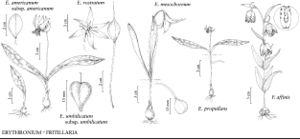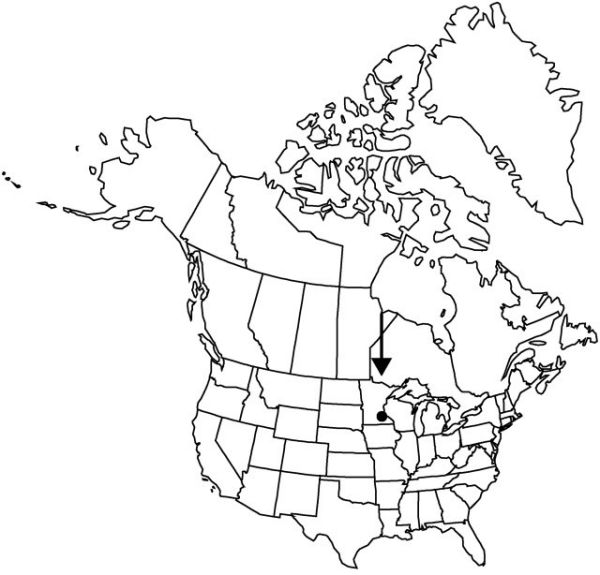Erythronium propullans
Amer. Naturalist 5: 300, fig. 74. 1871.
Bulbs ovoid, 10–25 mm; stolon 1 in flowering plants, arising from halfway up stem, 1–3 from bulbs of 1-leaved, nonflowering plants. Leaves 4–13 cm; blade green, irregularly mottled, elliptic-lanceolate to ovatelanceolate or elliptic, ± flat, glaucous, margins entire. Scape 3.9–12 cm. Inflorescences 1-flowered. Flowers: tepals 4–6, strongly reflexed at anthesis, pale-pink to white, darker abaxially, lanceolate, 8–15 mm, auricles absent; stamens 2–6, 6–8 mm; filaments white, lanceolate; anthers yellow; pollen yellow; style white, 6–10 mm; stigma ± unlobed. Capsules very rarely produced; when present, may result of hybridization with Erythronium albidum.
Phenology: Flowering spring.
Habitat: Mesic floodplain woods
Elevation: 300 m
Discussion
Of conservation concern.
Erythronium propullans is known only from Goodhue and Rice counties. It often forms extensive colonies in which flowering plants are sometimes more abundant than nonflowering, 1-leaved ones, and sometimes the reverse. It grows mixed with E. albidum (J. A. Banks 1980), and putative hybrids between them have been reported (T. Morley 1988). Flowers frequently have fewer than six tepals and stamens (C. O. Rosendahl 1919), and may occasionally have only two carpels.
Selected References
None.
Lower Taxa
"broad" is not a number."thicker" is not a number.

